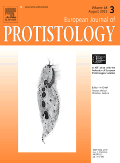
EUROPEAN JOURNAL OF PROTISTOLOGY
Scope & Guideline
Connecting Researchers in the World of Protists
Introduction
Aims and Scopes
- Diversity and Taxonomy of Protists:
The journal publishes studies focusing on the classification and identification of protist species, highlighting their morphological and genetic characteristics. - Ecology and Environmental Interactions:
Research analyzing the ecological roles of protists in various environments, including their interactions with other microorganisms and their responses to environmental changes. - Molecular Biology and Phylogenetics:
Emphasis on molecular techniques such as DNA sequencing and phylogenetic analysis to uncover evolutionary relationships among protists and their relatives. - Functional and Applied Protistology:
Studies exploring the functional roles of protists in ecosystems, including their potential applications in fields like aquaculture, bioremediation, and health. - Symbiosis and Host-Pathogen Interactions:
Research investigating the relationships between protists and their hosts, including studies on pathogenic protists and their impacts on host organisms.
Trending and Emerging
- Metabarcoding and High-Throughput Sequencing:
There is an increasing trend in using metabarcoding and high-throughput sequencing techniques to study protist diversity, allowing for more comprehensive assessments of community composition and dynamics. - Functional Genomics and Proteomics:
Research focusing on the functional aspects of protists, including gene expression and protein function, is gaining momentum, highlighting the importance of understanding the molecular underpinnings of protist biology. - Climate Change and Environmental Stress Responses:
Studies examining the impacts of climate change and other environmental stressors on protist populations and their ecological roles are emerging as significant themes, reflecting global environmental concerns. - Symbiotic Relationships and Host Interactions:
There is a growing body of work focused on the symbiotic relationships between protists and other organisms, including the impacts of protist pathogens on host health and ecosystem dynamics. - Novel Protist Species Descriptions:
The journal has seen a rise in the number of articles describing new protist species, indicating a sustained interest in biodiversity and taxonomy, particularly in underexplored environments.
Declining or Waning
- Historical and Philosophical Perspectives:
Papers emphasizing historical accounts and philosophical reflections on protistology have decreased, indicating a trend toward more empirical and experimental studies. - Generalized Protist Studies:
Research that does not focus on specific taxa or ecological interactions appears to be waning, with a preference for more targeted studies that contribute to understanding specific protist groups or ecological niches. - Traditional Microscopic Techniques:
While still relevant, the reliance on traditional microscopy techniques alone has diminished in favor of more advanced molecular and genomic methods, which offer deeper insights into protist biology.
Similar Journals

Botanical Studies is a premier open-access journal published by Springer, dedicated to the field of botany and plant sciences. Since its establishment in 2006, the journal has championed innovative research and scholarship that explores diverse botanical topics ranging from plant systematics to ecology and conservation. With a commitment to broad accessibility, it promotes the dissemination of knowledge to researchers, professionals, and students worldwide. Botanical Studies fosters academic collaboration and dialogue, contributing significantly to the global botanical community. Its open-access policy allows unrestricted access to its high-quality, peer-reviewed content, ensuring that vital research is available to all. Join the growing community of scholars advancing botanical science through this essential publication, conveniently located at One New York Plaza, Suite 4600, New York, NY 10004, United States.

ALGAE
Pioneering studies in ecology and plant science.ALGAE, an esteemed publication by the Korean Society of Phycology, serves as an authoritative platform for researchers and practitioners in aquatic science, ecology, and plant science. Founded in South Korea, this journal has established a commendable reputation, reflected in its Q1 rankings across multiple categories in the 2023 Journal Citation Reports and its impressive Scopus rankings, which position it in the top 20% of its fields. With a scope that encompasses the latest advancements in algal studies, highlighting both fundamental and applied research, ALGAE is crucial for those looking to deepen their understanding of phycology and its implications for biodiversity and ecosystem health. Though not an open-access journal, it provides valuable insights and cutting-edge findings that are vital for the scientific community engaged in ecological and biological research. With its robust trajectory from 2013 to 2024, ALGAE continues to push the boundaries of knowledge and foster innovation within the discipline.

European Journal of Taxonomy
Empowering researchers with accessible ecological insights.The European Journal of Taxonomy is a distinguished open access journal, published by the MUSEUM NATL HISTOIRE NATURELLE in France, dedicated to the rich and dynamic field of taxonomy, ecology, and systematics. Since its inception in 2011, this journal has aimed to provide a platform for the dissemination of high-quality research and innovative methods relevant to the study of biodiversity and species classification. With a commendable Q2 ranking in the Ecology, Evolution, Behavior and Systematics category as of 2023, the journal ranks 380 out of 721 in Scopus, highlighting its pivotal role in advancing scientific knowledge in these essential areas. Researchers and students alike will find valuable resources and contributions that address pressing ecological and evolutionary questions from 2015 to 2024. By promoting open access, the European Journal of Taxonomy ensures that vital research is accessible to a broader audience, fostering collaboration and discourse among professionals striving to enhance our understanding of the natural world.

PLANT SYSTEMATICS AND EVOLUTION
Elevating the Science of Plant EvolutionPlant Systematics and Evolution is a prestigious journal published by Springer Wien, dedicated to advancing research within the fields of plant taxonomy, evolution, and ecology. With its ISSN 0378-2697 and E-ISSN 1615-6110, this journal has been pivotal in shaping the scientific landscape since its inception in 1974. Based in Austria, it occupies a significant position in the academic community, being ranked in the Q2 quartile in both Ecology, Evolution, Behavior and Systematics and Plant Science as of 2023. This high-impact journal is recognized for its rigorous peer-review process and is indexed among the top publications in its category, holding a Scopus rank of #176 out of 516 in Plant Science and #252 out of 721 in Ecology, highlighting its relevance and quality in the research community. Although it does not currently offer open access, the journal is committed to making significant contributions to the understanding of plant biodiversity and evolutionary processes. This makes it an essential resource for researchers, professionals, and students aiming to know the latest developments in the study of plant systematics and evolution.
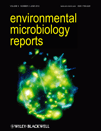
Environmental Microbiology Reports
Illuminating the Path of Microbial Contributions to Ecosystem HealthEnvironmental Microbiology Reports, published by WILEY, is a prestigious journal dedicated to the field of environmental microbiology, exploring the intricate interactions between microorganisms and their environments. With an ISSN of 1758-2229, this journal has established itself as a crucial resource for researchers, professionals, and students interested in the latest advancements and applications in microbial ecology, soil science, and environmental sustainability. Since its inception in 2009, the journal has grown in impact and reputation, proudly ranked in the Q1 category for both Agricultural and Biological Sciences and Ecology, Evolution, Behavior and Systematics as of 2023. Notably, it occupies the 17th position out of 193 in its subcategory based on Scopus rankings, showcasing its significance within the field. Although it does not currently offer open access options, the high-quality research published in this journal continues to contribute significantly to the understanding of microbial roles in environmental processes, emphasizing the vital role of microbes in maintaining ecosystem health and promoting sustainable practices.

WORLD JOURNAL OF MICROBIOLOGY & BIOTECHNOLOGY
Fostering Interdisciplinary Insights in Microbiology and BiotechnologyWORLD JOURNAL OF MICROBIOLOGY & BIOTECHNOLOGY, published by Springer, serves as a pivotal forum for advancing the fields of microbiology and biotechnology since its inception in 1990. Located in the Netherlands, this esteemed journal has secured a prominent position in the academic landscape, recognized for its strong impact factor and prestigious Q2 category rankings across disciplines such as Applied Microbiology, Biotechnology, and Physiological Sciences. Researchers and professionals utilize this journal to disseminate innovative findings and explore emerging technologies that are transforming the scientific landscape. With a robust submission rate and high visibility among the academic community, the journal fosters interdisciplinary collaboration, encouraging discussions that bridge gaps between theory and practical applications. As it converges into 2024, the WORLD JOURNAL OF MICROBIOLOGY & BIOTECHNOLOGY continues to be a vital resource for scholars aiming to enhance our understanding of microbial processes and biotechnological advances.
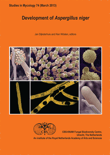
STUDIES IN MYCOLOGY
Illuminating the Ecological Impact of FungiSTUDIES IN MYCOLOGY is a premier journal dedicated to advancing research in the field of mycology, published by the renowned WESTERDIJK FUNGAL BIODIVERSITY INSTITUTE. With an impact factor that places it in the top quartile (Q1) of both Agricultural and Biological Sciences and Plant Science categories, it holds a prestigious position in the scientific community, ranking #1 out of 193 in its field as per Scopus metrics. Since its transition to Open Access in 2008, it has made significant strides in disseminating high-quality research widely, fostering a greater understanding of fungal biodiversity and its ecological impact. Covering a broad spectrum of topics related to mycology, the journal aims to provide researchers, professionals, and students with a platform for sharing innovative findings, stimulating academic discourse, and promoting collaborative efforts within this vital area of study. Hailing from the Netherlands, STUDIES IN MYCOLOGY serves as an invaluable resource for exploring the complexities of fungi, their interactions with various ecosystems, and their practical applications in agriculture and beyond.

JOURNAL OF BASIC MICROBIOLOGY
Connecting Ideas in Microbiology and BiotechnologyJOURNAL OF BASIC MICROBIOLOGY is a premier publication in the field of microbiology, published by WILEY since 1985. With a significant presence in Germany, this journal encompasses a wide spectrum of research topics, focusing on applied microbiology and biotechnology as well as diverse areas within medicine. Holding a commendable Q2 ranking in both its categories for 2023, it plays a crucial role in disseminating innovative findings and methodologies to the community. Researchers will find it to be an essential platform for sharing high-quality work, where it currently stands at rank #47 in the applied microbiology and biotechnology category, representing the 63rd percentile among international journals. The JOURNAL OF BASIC MICROBIOLOGY caters to a growing audience of professionals and students, offering insights essential for advancement in microbiological research and its applications. While it does not currently offer an Open Access option, it remains an influential outlet for academic excellence, continuously contributing to the development of the field through its rigorous peer-reviewed articles.
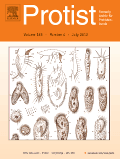
PROTIST
Connecting Science and Discovery in MicrobiologyPROTIST is a leading journal in the field of microbiology, focusing on the diverse and often complex world of protists. Published by Elsevier GmbH in Germany, this academic journal has established itself as a valuable resource for researchers, professionals, and students alike. Covering a wide range of topics within the realm of protistology, including taxonomy, ecology, and evolutionary biology, PROTIST aims to promote the understanding of these essential microorganisms, which play critical roles in ecosystem dynamics and human health. Although it currently holds a Q3 ranking in the 2023 category quartiles for Microbiology, it aspires to elevate its status through high-quality articles and innovative research findings. The journal operates under an open-access model, fostering global dissemination of knowledge and encouraging collaborative research. With its extensive scope—from its convergence starting in 1998 to its anticipated developments through 2024—PROTIST remains a vital platform for advancing the study of protists and their impact on our world.
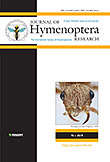
JOURNAL OF HYMENOPTERA RESEARCH
Advancing the Frontiers of Insect ScienceJOURNAL OF HYMENOPTERA RESEARCH is a leading open-access publication dedicated to the advancement of knowledge in the fields of Insect Science, Animal Science and Zoology, and Ecology. Published by Pensoft Publishers since 2011, this journal plays a critical role in facilitating the exchange of significant research findings and insights related to Hymenoptera, a diverse order of insects that includes bees, wasps, and ants. With a commendable impact factor and ranked in the Q1 category for Insect Science and Animal Science, the journal stands out within the scientific community, drawing contributions from researchers globally. Boasting an ISSN of 1070-9428 and an E-ISSN of 1314-2607, the journal not only ensures broad accessibility to its content but also fosters a collaborative environment for professionals and students alike to engage with pioneering research. By reflecting on the converged years of 2007-2024, the JOURNAL OF HYMENOPTERA RESEARCH remains a vital resource for understanding the ecological and evolutionary dynamics of this important group of insects, solidifying its position as a cornerstone in entomological studies.